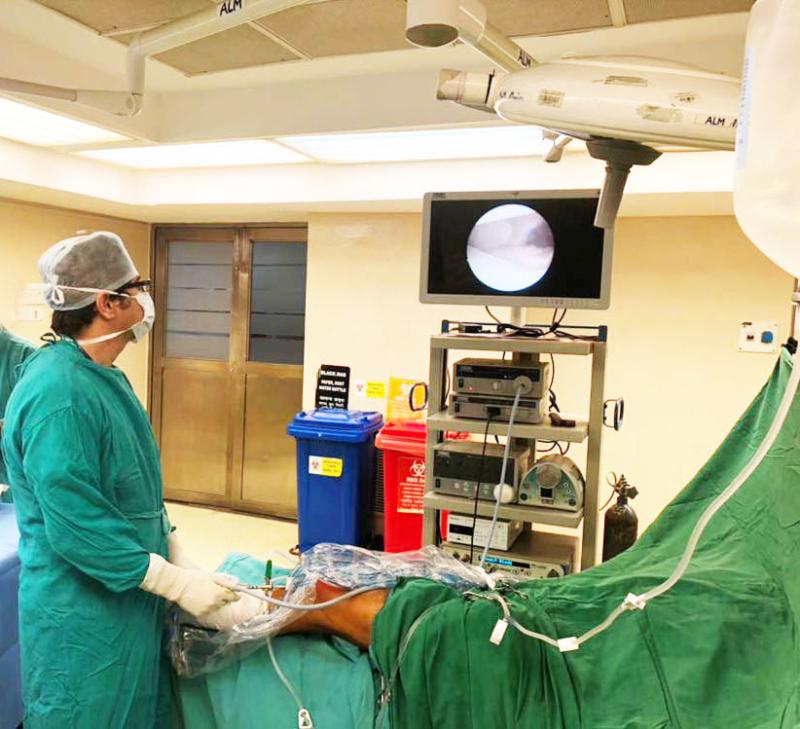Important Questions to Ask Your Orthopedic Surgeon During a Consultation

Are you preparing for an Orthopaedic
consultation and feeling overwhelmed with questions? You're not alone! Choosing
the right surgeon for your needs is crucial, and knowing what to ask can make
all the difference in your care. From understanding your diagnosis to
discussing treatment options, having the right questions on hand can make all
the difference in your care journey. Our guide, Important Questions to Ask Your
Orthopaedic Surgeon During a Consultation, is designed to empower you
with crucial insights that can lead to informed decisions about your health.
About
Your Condition
Q.
What is actually wrong with me?
Ans. Understanding the specifics of your health problem is crucial for
receiving the right treatment. A proper diagnosis will illuminate the nature of
your illness, providing clarity on how it impacts your body and overall
well-being.
Taking this step helps you grasp not only
the present symptoms but also the potential long-term effects of your
condition. Knowing what challenges lie ahead can empower you to make informed
decisions regarding your care and lifestyle adjustments.
Q.
What are the possible causes of my condition?
Ans. Identifying the root causes of your illness can be crucial in
preventing further complications or recurrences. Consider whether any recent
activities, injuries, or even family medical history might contribute to your
condition.
Q.
How serious could my illness become without treatment?
Ans. Gaining insight into the severity of your illness enables you to grasp
the risks associated with inaction. Knowing what could happen if left untreated
can significantly influence your decision-making regarding options like
surgical procedures or alternative treatments.
By thoroughly exploring these aspects,
you empower yourself to make informed choices about your health journey.
About
the Surgery
If surgery is the recommended treatment
for your condition, it's crucial to engage in a thorough discussion with your
doctor. Begin by asking specific questions about the surgical procedure
proposed for your situation.
Q.
Choosing the Right Surgery
Ans. Inquire about which type of surgery aligns best with your diagnosis.
Ask your surgeon to explain their rationale for selecting this particular
approach over others.
Q.
Details of the Procedure
Ans. Request a detailed overview of what the surgery entails. Understand the
steps that will be taken during the operation, how it will be performed, and
any preparations you need to undertake beforehand.
Q.
Risks and Benefits
Ans. Every surgical intervention comes with its own set of risks and
benefits. It’s vital for your surgeon to discuss these openly with you,
including potential complications, the likelihood of success, and how this
surgery can improve your health.
Q.
Alternatives
Ans. Before settling on surgery, explore all possible treatment options.
Inquire whether there are alternative therapies such as physiotherapy,
medications, or lifestyle changes that could alleviate your symptoms.
Q.
Success Rate
Ans. Understand the effectiveness of the surgery by discussing success
rates and potential complications with your surgeon. Ask them to share their
experiences with past patients and whether they achieved favorable outcomes.
Q.
Recovery Time
Ans. Recovery expectations can vary significantly based on the type of
surgery performed and your overall health.
About
Post-Surgery Care
After your orthopedic surgery, it’s
crucial to have a clear understanding of post-surgery care. Don’t hesitate to
ask questions about what to expect once the procedure is over.
Q.
Physical Therapy
Ans. Will physical therapy be necessary following my surgery? Many
orthopedic procedures require targeted rehabilitation to strengthen the
affected muscles and restore mobility or agility. Inquire about what
physiotherapy interventions will be part of your recovery journey and how often
these sessions will take place.
Q.
Limitations
Ans. What specific activities should I avoid post-surgery? It's crucial to
identify any restrictions on movements or exercises that could lead to
complications during your healing phase. Ask for a clear list of dos and don’ts
and how long you should adhere to these limitations.
Q.
Aftercare Follow-Up
Ans. Regular check-ins are vital for monitoring your recovery, addressing
any concerns, and assessing your overall health after surgery. Make sure you
understand the timeline for these visits and their importance in your
recuperation process.
Q.
Insurance Coverage
Ans. One important topic to discuss is insurance coverage. Inquire whether
your health insurance will cover the surgery and any associated costs.
Understanding these details can help you avoid unexpected expenses down the
line.
Q.
Out-of-Pocket Costs
Ans. Even with insurance, there may be out-of-pocket expenses. Ask your Orthopaedic
surgeon in Delhi for an estimate of potential co-payments,
deductibles, or other service fees not covered by your plan.
Q.
Payment Options
Ans. Additionally, explore your payment options. It's beneficial to know if
there are payment plans or financing arrangements available that can help make
managing the costs more manageable. Recognizing these alternatives will provide
peace of mind as you navigate the financial aspects of your treatment.
Q.
Experience
Ans. When choosing an Orthopaedic
surgeon in Delhi, understanding their level of expertise with your specific
procedure can significantly impact outcomes. Ask how many times they have
performed this particular surgery.
Typically, a surgeon's success rate
improves with experience and repetition of a specific operation. Therefore,
it’s important to know not just when they started performing surgeries but also
the individual success rates they’ve achieved over time.
In conclusion, preparing for your
consultation with an Orthopaedic
surgeon in Delhi is essential for ensuring that you receive
the best possible care. By asking targeted questions about your condition,
treatment options, and recovery processes, you empower yourself to make
informed decisions regarding your health.

Comments